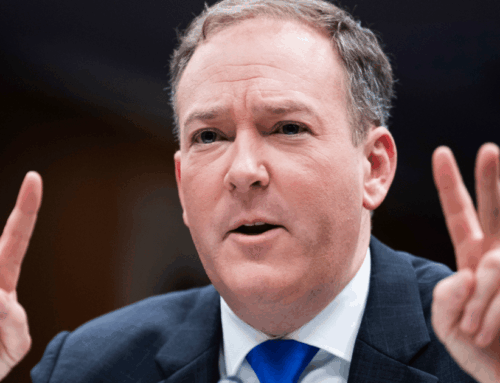SEC Regulation In A Non-Regulatory Environment
May 16, 2025
With Paul Atkins as the new SEC Chair, the agency’s
priorities have shifted away from many of the aggressive policies
of former Chair Gensler. The first four months of the Republican
controlled SEC saw a dramatic shift in the approach to crypto with
the dismissal or pause of major litigation, the
termination of several longstanding investigations, the recission
of accounting guidance regarding the safeguarding of crypto assets
and the establishment of a new task force to help formulate the regulatory
approach to crypto going forward. With the enforcement program
under a new SEC undergoing significant changes, there will likely be a
return to more traditional enforcement cases with greater emphasis
on egregious conduct involving pecuniary gain or investor harm,
moving away from “pushing the envelope” cases.
Enforcement sweeps involving off-channel communications, late
filings and other “broken windows” initiatives are
expected to fall by the wayside. Regulation by enforcement could be
replaced by increased interaction with the Staff, formal or
informal guidance or lighter-touch rulemaking.
New Chair Atkins has advocated for greater transparency and
efficiency in rulemaking and enforcement. Under his leadership,
onerous new rulemaking should decrease dramatically, helpful
guidance on existing rules should emerge and new ideas could be
solicited through industry roundtables. Amendments to existing
rules may even open new possibilities for fund managers and other
investment advisers (including, per recent announcements, facilitating capital formation). On the
enforcement front, investigations may proceed more efficiently,
resolve faster, and focus more on substantive violations.
Settlements may also align more closely with the SEC’s penalty
guidelines, calibrated to elements of the penalty statute.
A new direction in rulemaking and enforcement, however, does not
necessarily mean that the Staff will no longer focus on the
concerns underlying the more controversial issues under former
Chair Gensler. The current Republican Commissioners may have
previously spoken critically of certain rule proposals, but they
have also recognized a need to prevent fraudulent or other harmful
activities by investment advisers and other regulated market
actors. Thus, while the SEC may not bring waves of high penalty,
off-channel communications cases against registered entities, the
Staff will expect those records to be retained as required under
existing rules and may more regularly request their production in
exams and investigations. Other issues that may have been referred
to Enforcement in the past may remain as exam deficiencies, or the
investigative Staff could look harder to find a substantive
violation over mere compliance policy or internal control
violations.
Having developed specialized expertise over private fund
managers since the adoption of Dodd Frank, the Examinations
Division (both at the Regional Office level and in at the
Division’s Private Funds Unit), as well as the Enforcement
Division’s Asset Management Unit, will continue to look for
emerging, impactful issues and cases. Indeed, given the expected
return to more “bread-and-butter” issues and enforcement
cases, the following traditional issues involving private fund
managers should still be in play:
- Fiduciary Obligations –situations
involving allegations of potential fraud, breach of fiduciary duty,
or conflicts of interest; expect greater scrutiny where the alleged
conduct involves pecuniary gain to the manager or investor losses
or other harm. Issues relating to fees and expenses, allocations,
valuations, cross-fund transactions and related matters should
remain a focus in exams and enforcement, as they were under the
previous Republican administration.
- Retail Investors – matters that can be
framed as protection of individual investors (i.e.,
registered funds or 3(c)(1) funds, which do not limit their
investors to “qualified purchasers”); the market’s
push towards retailization of alternatives may heighten the
Staff’s interest in this area.
- Trading/MNPI – insider trading
investigations, which have been supported across the political
divide; the Staff’s focus on credit instruments and other
markets that traditionally have not been a focus has been
demonstrated by recent enforcement actions alleging an
adviser’s failure to maintain and enforce written MNPI policies
involving trading in distressed debt and collateralized loan
obligations.
While enforcement actions based solely on violations of the
Compliance Rule (Rule 206(4)-7 under the Investment Advisers Act)
seem less likely, these investigations typically begin by focusing
on potential substantive violations. Enforcement Staff rarely set
out to pursue compliance policy cases. Under the new SEC,
investigations that fail to reveal substantive violations are more
likely to be terminated without an enforcement recommendation,
rather than resolved with compliance violations. However,
investigations and exams will still focus on a firm’s culture
of compliance. The perception of weak internal controls or
inadequate policies are often viewed as a “red flags,”
prompting the Staff to dig deeper and look for other potential
issues – some of which may lead to related (or even
unrelated) substantive findings the longer the Staff’s review
drags on.
The SEC’s shift in rulemaking and enforcement priorities is
certainly welcomed by many investment advisers. It should not,
however, be seen as a move to complete deregulation, and investment
advisers should remain focused on compliance and their fiduciary
obligations.
Read more of our Top Ten Regulatory and Litigation Risks for
Private Funds in 2025.
SEC Regulation In A Non-Regulatory
Environment
The content of this article is intended to provide a general
guide to the subject matter. Specialist advice should be sought
about your specific circumstances.
Search
RECENT PRESS RELEASES
Related Post



